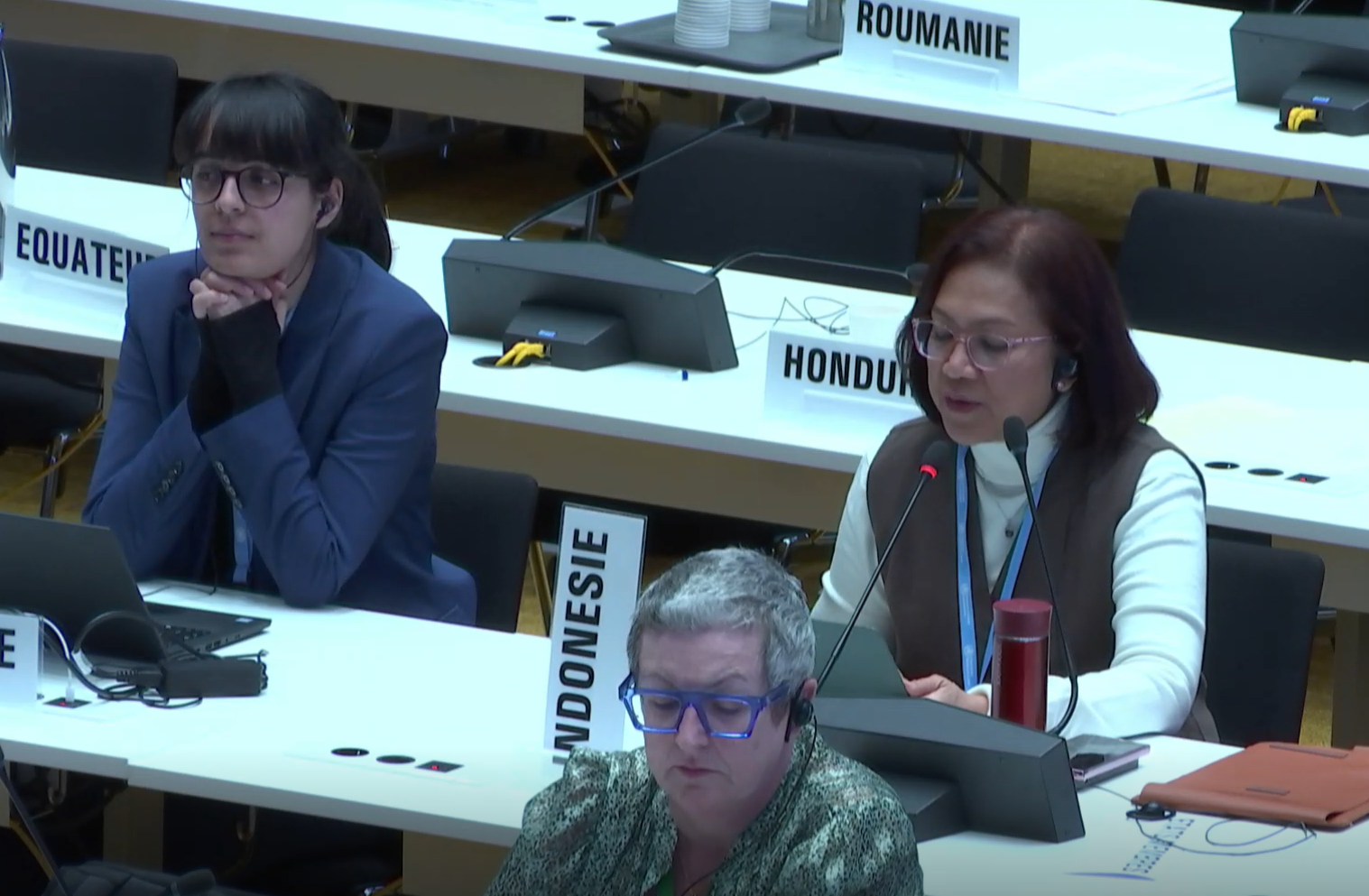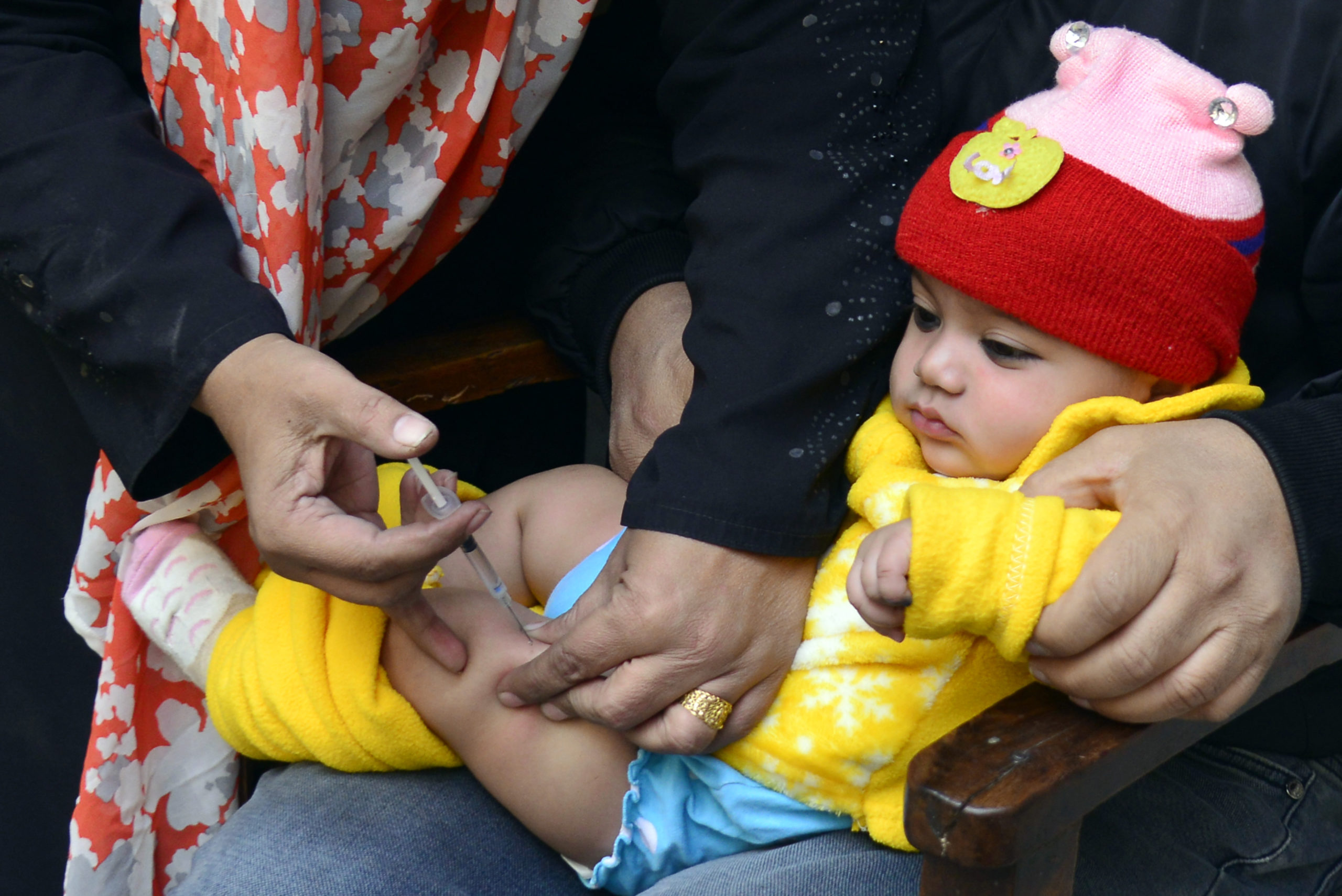
WHO Executive Board, Geneva, Switzerland, 7 February 2025 – Health ministries from around the world meeting at this week’s WHO Executive Board in Geneva expressed serious concern about increasing wild poliovirus transmission in the last two remaining endemic countries, Pakistan and Afghanistan, noting that extraordinary measures were going on in response.
The year 2024 saw an increase in virus transmission in both countries, which share the last remaining endemic wild poliovirus reservoir in the world. WHO Member States commended the new emergency operational approaches being now implemented in both countries to turn the tide on this trend. These approaches include identifying the different operational reasons why children are not being reached, area by area; increasing co-administration of inactivated polio vaccine (IPV) alongside oral polio vaccine (OPV); boosting overall immunity levels in children; and, improving access to more adequate sanitation infrastructures.
These measures reflect the unique environmental, geopolitical, programmatic and security challenges affecting both countries, which together essentially create an epidemiological ‘perfect storm’ for poliovirus transmission. These approaches must be underpinned by strengthened surveillance activities not just in highest-risk areas, but comprehensively across all areas of both countries, and doing more to protect polio-free areas, particularly in critical border areas, and among highly mobile population groups, in particular in three clearly identified ‘virus transmission corridors’ affecting both countries.
Speaking on behalf of the Eastern Mediterranean Region, Regional Director Dr Hanan Balkhy said: “I assure you, on behalf of our Region and the leaders of both endemic countries, our commitment to eradicating this virus is stronger than ever. We must reach and vaccinate every child and keep up a robust search for poliovirus, to stop further spread. Achieving this is far from simple. Pakistan and Afghanistan face immense geopolitical, infrastructural, environmental, and security challenges, creating what many describe as a ‘perfect storm’ for poliovirus transmission. Still, none of these challenges are insurmountable.”
“In Gaza,” Balkhy continued, “during a humanitarian pause last year, over 600,000 children were vaccinated against polio amid conflict – largely thanks to multi-actor, multi-level coordination and health and community workers’ grit. If it can be done there, it can be done everywhere. Recently, leaders and experts from both endemic countries convened to develop emergency measures. Together, they outlined concrete steps to reach every child, no matter the obstacles, to tackle this virus resurgence and protect them. We deeply appreciate the international community’s steadfast support, and we ask for your continued assistance to get us across the finish line.”
Member States expressed concern about the ongoing variant poliovirus outbreaks (circulating vaccine-derived polioviruses) and urged intensified response to stop these outbreaks, including by maximizing the impact of novel oral polio vaccine type 2. While the engines of transmission for such strains are now in clearly identified areas, namely northern Nigeria, eastern Democratic Republic of the Congo, south-central Somalia and northern Yemen, Member States underscored all countries remain at risk as evidenced by recent detection of such strains in environmental samples in five European countries.
“We all need to be very clear about one thing: the global effort to eradicate polio is no longer a technical issue,” commented Dr Razia Pendse, WHO Chef de Cabinet to the Director-General. “Medically and technically, we have everything we need to achieve success. What we need, the only thing we need, is to be able to reach and vaccinate those last remaining children who are not yet fully vaccinated. And the answer to achieving this is entirely geopolitical.”
The meeting also emphasized the importance of strengthening routine immunization services and disease surveillance everywhere, done in close coordination with all partners, including Gavi, the Vaccine Alliance.
Health authorities emphasized the importance of implementing all activities to not only achieve a polio-free world, but also to sustain it through integrating and successfully transitioning the polio assets, tools and infrastructure into existing national health systems and to help build strong, resilient and equitable health systems, and preparing for the post-certification era through intensified and accelerated containment activities and eventual cessation of oral polio vaccines use from routine immunization programmes. Successful development of an appropriate post-certification strategy will be critical to achieve this.
Closing the discussions, Rotary International, the civil society partner of the Global Polio Eradication Initiative, called for steadfast dedication to the effort. “We have overcome every setback through collaboration and unity of purpose that is rare in our fragmented world,” said Dr Pierre Hoffmeyer, Rotary International representative to the United Nations in Geneva. “Let us all remain united and unwavering in our commitment to end polio.”



